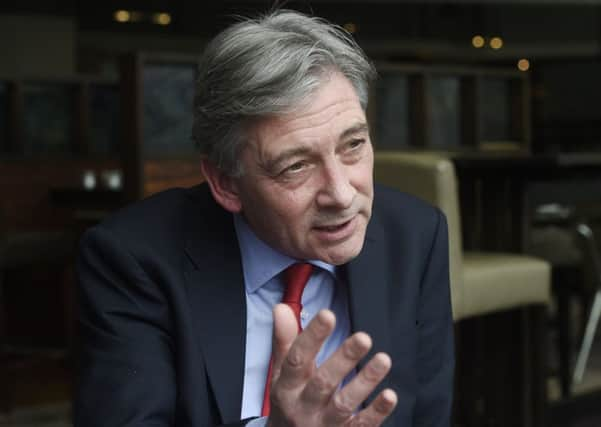Richard Leonard: '˜Breakdown in trust' holding back Brexit progress


He said there has been a “breakdown in trust” between the Scottish and UK Government and wants Labour, the Liberal Democrats and the Greens round the table to breathe new life into talks which have so far failed to reach an agreement. Mr Leonard has written to Cabinet Office Minister David Lidington and Scottish Brexit minister Michael Russell proposing a cross-party summit.
Labour MSPs will vote with the SNP, Greens and Liberal Democrats to reject a legislative consent motion (LCM) on the EU Withdrawal Bill at Holyrood tomorrow, plunging devolution into an unprecedented constitutional crisis.
Advertisement
Hide AdAdvertisement
Hide Ad“As there appears to be a breakdown in trust and confidence between the two Governments there really needs to be an alternative way found forward,” Mr Leonard told BBC Scotland’s Sunday Politics Show.
“There is a lot at stake with the EU Withdrawal Bill and the devolution aspect of it.
“It appears that we are heading to a situation where the Scottish Parliament on Tuesday will almost certainly vote down a legislative consent motion on the Withdrawal Bill because of the treatment of devolution in it as it’s currently constructed. I think there is still an opportunity to find a constructive way forward.”
He added: “There needs to be, at this stage, a widening of the discussion around a resolution which will involve which will involve other parties beyond those who are represented in the two Governments.”
The concerns centre on 24 key powers, in areas including farming and fishing, which will go to Westminster when they should rest at Holyrood in line with the devolution settlement.
UK ministers say these are to needed to ensure the integrity of the UK single market and ensure smooth UK-wide frameworks in areas like food standards.
A deal which offers a seven-year “sunset clause” has already been accepted by the Welsh Government which had similar “power grab” concerns.
Mr Russell said last night he remains keen to seek a deal.
“We continue to talk to all the parties at Holyrood on regular basis and are very open to ideas from them to try and resolve this impasse,” he said.
Advertisement
Hide AdAdvertisement
Hide Ad“I am happy to talk to Richard Leonard about any suggestions he has.”
A Cabinet Office spokeswoman added: “It is disappointing that the Scottish Government still does not feel able to sign up to our proposals and deliver that certainty for businesses.
“We welcome any move towards constructive dialogue and want to be clear that the door is still open to them to do so.”
Scottish Secretary David Mundell has said a “third way” is needed before a deal can be reached between Holyrood and Westminster. Crunch talks in London a fortnight ago ended without a deal.
MSPs on Holyrood’s Constitution committee have recommended the Brexit Bill in its current format is rejected when it comes before the Scottish Parliament, but appealed for a political agreement to be reached.
The EU Withdrawal is not expected to complete its legislative passage at Westminster until later this Summer. This means that even if MSPs do withhold legislative consent on Tuesday, it’s not the end of the road. A deal could still be struck between Holyrood and Westminster, which could then lead to a fresh vote on legislative consent being brought before MSPs.
The UK Government has indicated that it will press ahead with the EU Withdrawal Bill, including Scotland, even if Holyrood does withhold consent. The Scottish Government has passed its own post-Brexit legislation, the EU Continuity Bill, but this has been referred to the UK Supreme Court after Holyrood Presiding officer Ken Macintosh said it was outwith the competence of the Scottish Parliament. Scotland’s Lord Advocate Lord Wolffe advised it is lawful.